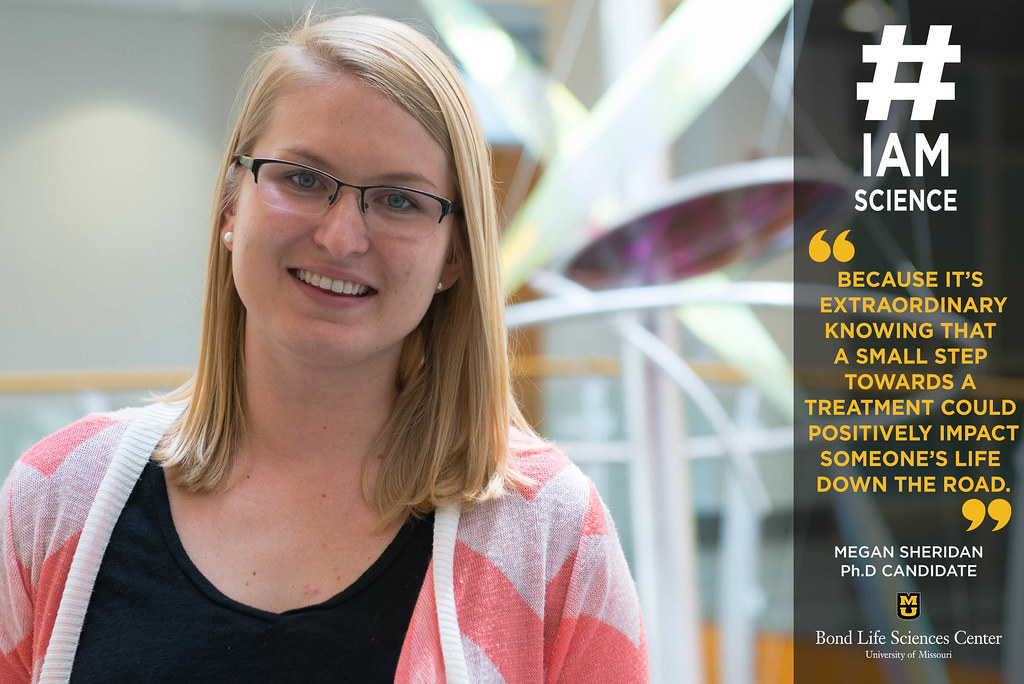
By Mary Jane Rogers | Bond LSC
“#IAmScience because it’s extraordinary knowing that a small step towards a treatment could positively impact someone’s life down the road.”
Megan Sheridan doesn’t let anything slow her down.
From presenting at the Society for the Study of Reproduction’s Trainee Research Competition last week—and winning first place—to finishing up her thesis while working in Dr. Michael Roberts’ lab, she’s always juggling multiple projects. Sheridan is finishing up a Ph.D in biochemistry and hopes to graduate in December 2017 or May 2018, depending on how quickly she finishes writing her thesis.
“I was lucky enough to pick up a project studying Zika virus infections early in pregnancy,” she said. “It was one of those perfect timing moments, and we ended up getting some pretty exciting results off the bat. Now I’m really inspired by the direction my thesis work is going and find that my projects are very different but that makes things exciting.“
Sheridan’s thesis focuses on using stem cells as a model for early placenta development and how preeclampsia and viral infections like Zika impact a pregnancy. Preeclampsia is a condition during pregnancy that causes high blood pressure and protein in the urine. The disease likely occurs in the first trimester, but the symptoms don’t evolve until the 2nd or 3rd trimester. To study it, Sheridan uses stem cells generated from umbilical cords of babies born to mothers experiencing preeclampsia or a normal pregnancy, and then uses those cells to determine what defects in the placenta might contribute to the disease preeclampsia.
“I would like to learn as much as possible about the placenta and human pregnancy,” she said. “There are so many unknowns in this area of research because you can’t access the placenta during a pregnancy without disrupting the pregnancy. There are many complications that effect the mother and baby, and if more was known about normal placenta development in pregnancy, then we may be able to better understand and prevent some of those complications.”
Sheridan completed her undergraduate degree at MU, and urges undergraduates to get started in research early, as she believes it gives students a stronger foundation for graduate school. She also believes that mistakes are part of the research process, and wasn’t afraid to share one that she made early on in the Ph. D program.
“I remember in my very first rotation as a graduate student I was learning how to transfect cells with DNA so we could do a reporter assay. We were in the process of adding all the reagents, and between the student I was working with and myself we got confused about who added what,” she laughed. “Somehow, we never added the DNA- an integral part of the transfection! So a week later when we were analyzing the data, we noticed there were no values at all.”
After graduation, Sheridan hopes to experience living outside of Missouri for her postdoc placement. She’d like to stay in academia, and looks forward to continuing to research and teach.
Perhaps one day she’ll even return to MU and Bond LSC!

